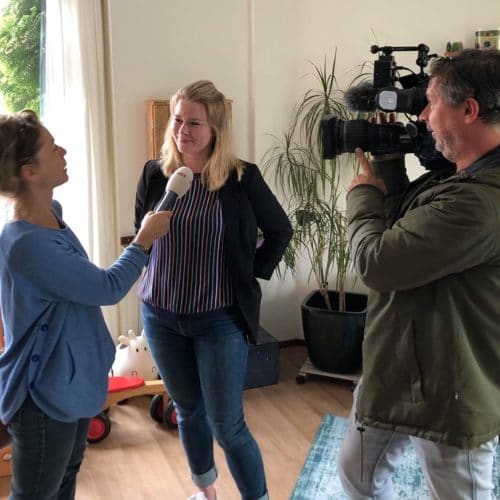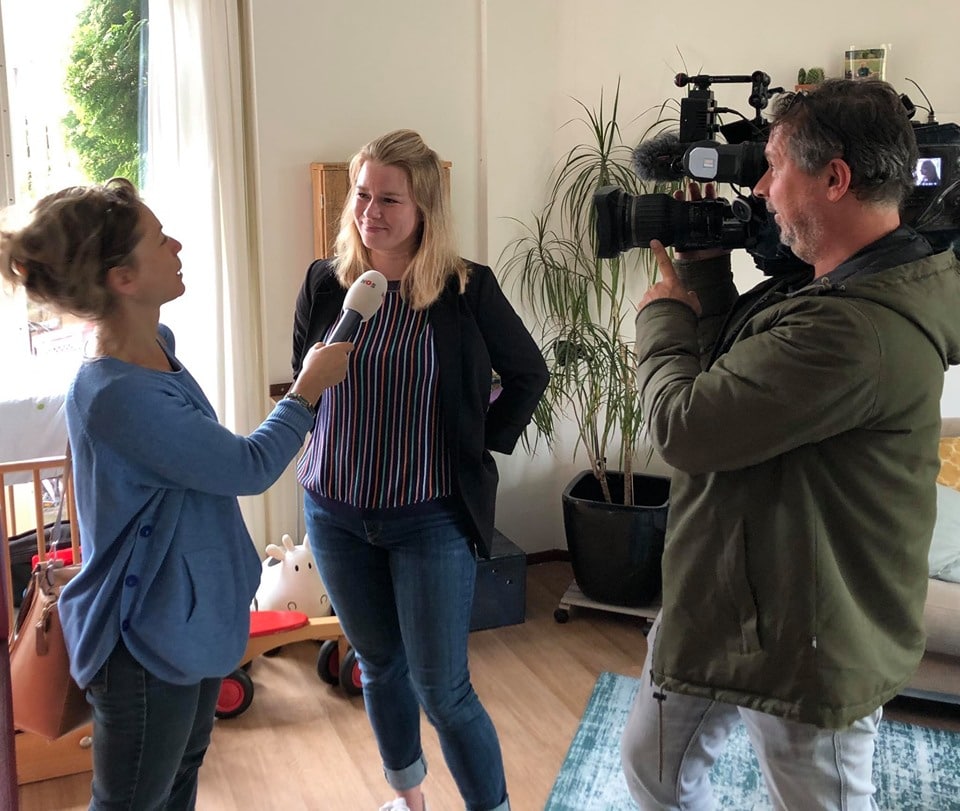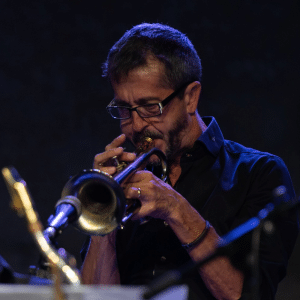Oboe star: If I get a full house, I earn $152.80
mainThe Dutch oboist Dorine Schoon has been talking about starvation-level fees for freelance musicians in the Netherlands:
‘In professional orchestras, from the Concertgebouw, the Metropole, to the regional orchestras, one receives 87 euros gross ($97) for a three-hour rehearsal. Travel time is not reimbursed. You can spend seven to eight hours for 87 euros…
‘If I play solos for a packed house, I get 136 euros gross ($152.80)…
‘On radio and TV we are expected to play for free.’
Dorine has founded a Platform for Freelance Musicians to protest at these inequities.







That is shocking .
Those figures, if accurate, are shocking. Musicians are talented and should be well reimbursed for their work. Do others who appear on t.v. do so for free?
I am particularly surprised that this is happening in the Netherlands, which is a wealthy, advanced country with some fine musical groups.
As a substitute in the RCO it is a bit higher than other orchestras in the Netherlands, but you get paid (before taxes) 98 euros for 3 hours rehearsal and 158 for a concert. Other orchestras in the Netherlands pay even less.
So the rehearsal + concert is 246. Most programmes play three times hence 572 euros for the week’s work. Not great, not great at all…but not a disaster. (You would definitely want to supplement your income some how).
But this situation in the Netherlands has always been like this. The country is not a really European one, since culture is not a part of national identity, the general psychological climate defines culture as a hobby and classical music as an elitist pastime. And indeed, while there is much talent in terms of performers, often they are treated like beggars. The big cultural institutions, like the Rijksmuseum and the Concertgebouw in Amsterdam, are kept safe and managed as a business – and it is generally thought that this is enough (they are frequented by many tourists so an excellent money maker). The players of the Concertgebouw Orchestra however, are paid much lower than any other international orchestra in that league. A couple of years ago, the famous Radio Orchestra was almost cancelled by the Secretary of State for Culture (!)…. says it all. Generously subsidized institutions for new visual art and new music are run by amateurs without any cultural awareness, conservatories produce young players who cannot find jobs, etc. etc. The really talented artists try to get out of the country and build-up a career abroad, and mostly discover that other European countries (rightly) prefer their own talents, so: the opposite of the Dutch disease, which creates barriers again. There is a whole psychological art neurosis reigning in the country which would be stuff for (quite shocking) anthropological research.
The figures are correct
The figuren are shocking indeed, but true. I’m glad it’s coming out now, time for a policy and mentality change.
There’s a lot you don’t know about the Netherlands….
Total governmental cultural spending in the Netherlands is high even by EU standards. For 2017 was 2.8 billion Euros which comes to about 164 Euros per person. That’s more than Germany and France. And yet the country ranks fairly low in orchestras per capita (though I don’t know the exact number.) Amsterdam is only 33rd for opera performances per year. And Rotterdam is an abysmal 563rd.
One wonders where the money is going. Visual arts play a larger role in the Netherlands cultural history, and they maintain some truly fabulous museums. And the cultural protection of remarkably beautiful cities and towns requires a lot of money. But still, one wonders why they play down classical music, especially when they can produce orchestras like the Concertgebouw. And when they have two very fine conservatories.
https://www.culturalpolicies.net/web/netherlands.php?aid=61
It has to do with the psychological history of the country which was only constructed in the 16th century, and which was the first bourgeois nation in Europe, not run by a monarch but by the burghers themselves. There was a deep suspicion of neighbouring countries where the arts were identity-building tools by dominating courts and an all-powerful church. In Holland there was a (relative) freedom of religion and the little court of a prince was insignificant. It always was an industrious immigrant country focussing on trade and individual freedom. The greatest art was painting and its most popular subject was daily life of the common people who saw themselves celebrated in stately portraits and interior / street scenes. But that only lasted untill around 1700. Most important was trade and since music could not be traded like spices, cannons or slaves, i.e. like concrete objects creating wealth, it was not considered as something serious. So, all the money that currently goes into ‘the arts’ bypass music.
Well, it’s great that she’s talking about it publicly, but this is nothing unique to the Netherlands.
Just check the pay scale of most of the regional per service orchestras in the US. Conditions are about the same. And who ever reimbursed travel time for freelancers?
It’d be interesting to hear from some UK players on this. They notoriously have among the worst pay scales and conditions (with some of the best players) in Western Europe.
In Europe, I can only speak for Spain, but this almost exactly what my full time prof. orchestra pays for subs. No travel time.
Not even tenured players are paid extra for recordings or television by my orchestra. There’s an outside organization called AIE (Sociedad de Artistas Intérpretes o Ejecutantes de España.) which you can join (usually on your own) which attempts to reimburse musicians for residuals for recordings and broadcasts. We record for several big labels. It works out really well for them. For us, it’s just another day at work, pay is the same as a rehearsal. The Netherlands doesn’t have a monopoly on this type of situation, and it doesn’t affect only freelancers.
Another issue Dorine eludes to is that of a Principal player getting only $152.80 a concert. That also resonates. There is much more responsibility to being a Principal Wind or Brass than being in the section. There has got to be a significant pay difference between a Principal and a Tutti because otherwise it’s simply not worth it to sit Principal.
The packed house thing is an odd reference. I’m confused as to why it should make a difference how many people are in the audience. Aren’t Dutch orchestras govt. funded? Ticket sales wouldn’t be a major source of revenue for the orch. then. I’ve never equated no. of people in the audience with how much I should be paid.
Wishing Dorine much success with this, but she must know that what she describes is quite standard in other countries.
Obviously, the nr of listeners underline the importance of the performance for a lot of people, and the worth of the players. And they don’t know that the players are underpaid.
Easily forgotten: these numbers are before tax.
Tax rates in the Netherlands are really high!! Much higher than in the US, UK, actually most countries.
Compared to Spain: about twice as high. Not to mention the high living costs in NL. Comparing fees before tax means completely underestimating how little musicians are left with in the Netherlands.
The Netherlands is not the only country with high taxes for orchestral earnings. I pay one third or more – usually close to 40% of my salary in Spanish taxes. If you are paying twice that, as you say, which would be a 60-80% taxation rate, then I would seriously consider working somewhere else.
The US also has significant taxes on freelance earnings, BTW.
Furthermore, any US citizen working outside the US has to declare taxes twice: once to the country of residence and again to the IRS of the US. It’s called citizen based taxation, and only 2 countries in the world do it. US is one of them.
Cost of living is high in any desirable city, be it Europe, UK or US.
Again, I commend the attention given to this issue, but the Netherlands is not unique with this problem.
True that US citizens living abroad have to file taxes twice: in the States and wherever they’re living. I do it every year and it’s a pain. But unless they net more than about 100000 a year, or live more than 6 weeks a year in the States, they don’t have to pay US taxes, and even then they are taxed only on the earnings above about 100000.
Right. But how much does it cost you to have someone prepare that return for the IRS which allows the exemption? No one I know can do it without professional help, at least the 1st time. You need a tax professional skilled in FATCA & FBAR which is not all that common, and very expensive. If you’ve got to pay $1000 or more to declare in order to get the exemption, I consider that a tax expense on my orchestral earnings.
For the first one I did use a professional, but for much less than a G. For the last 15 years I’ve used her work as a model. No problems so far.
Many union per-service orchestras in the US pay higher rates than than $97 per service. And some travel reimbursement and even modest hotel stay is not uncommon as well, depending on the group.
Some do and some don’t. But $97 is not out of line with what many pay. If you check audition announcements you can see this. Yes sometimes you can negotiate travel/hotel, but they don’t usually advertise it.
Since you ask for UK input, the UK’s Musicians’ Union negotiated rates are readily accessible online to see, e.g.:
https://www.musiciansunion.org.uk/Home/Advice/Playing-Live/Orchestral-Work/Pay-Conditions/Orchestral-Freelance-Agreements
as an example:
https://www.musiciansunion.org.uk/Home/Advice/Playing-Live/Orchestral-Work/Pay-Conditions/Orchestral-Rates/ABO-Category-1
Travel payments, in reply to another comment on this thread, are a combination of a distance payment per mile and a payment for the time travelling (also calculated as a per mile amount). Travel by methods other than road attract a time payment in addition to the fare / distance.
Wow. Thank you. Fascinating. Not as bad as everyone makes it out to be. We often get guest conductors who tell us what privileged salaries and conditions we have compared to UK players. Not the case apparently. They earn quite a bit more than us.
What’s the difference is between a Principal and a Section Principal? Trying to figure out where our friend Dorine would fall on this scale.
Rotterdam philharmonic for substitute players BRUTO:
81,96€ per 3h rehearsal
132,29€ per concert
Have been saying this over twenty years now.. The real issue is that organising parties (read Concertgebouw, Tivolli etc) keep being in business by offering below market price fees even for their regular concerts – not even to mention their free lunch time concerts. It’s a conscious desicon on their part to try to pay the lowest fee possible for anyone apart from the high flyers – to boost their own profile. As an insider (organiser) for many years I can claim with confidence that in general organisers of concerts hold musicians in contempt; they are just a means to their ends. Read; theye only care about their own job.
Alas, that has alwyas been my impression as well. But since running an orchestra is a difficult job, staff is focussed on management work, and the contents of the ‘product’ gets forgotten, including the producers.
Hmm, part of damaging psychology portrait here is the term “talent.” In my view, talent is everywhere and it’s merely a potential to be tapped. What should, in theory, command higher fees is high skill level and excellent training that apply to both principal and tutti positions. My old German singing professor used to say “There’s enough talent around to feed the pigs.” Perhaps that’s the essence of the problem.
Unfortunately this is more or less true!!
Well that’s freelance!and 150 for 1 concert sounds ok
This is horrible. Maybe the musicians have to “band together” and form a union?
Another instance of why the Chicago Symphony action was so important. Otherwise, musicians are treated like dirt.
These concert and rehearsal rates to the orchestral musicians sound as if, roughly, the ticket sales equals to orchestra cost. With something left over for the hire-of-the-hall and the person who sells the ticket. But nothing for the conductor and soloist. Truly, the art form can not exist without someone subsidizing it.